China has a huge problem – US$3.2 trillion foreign exchange reserve – the world’s largest reserves. In comparison, Japan, the country with the second largest foreign reserves, has only US$1.4 trillion (as of Feb 2022). China’s foreign assets included more than US$1 trillion in U.S. bonds and huge amounts of real estate, especially hotels and office buildings in New York.
It was due to Beijing’s deep pocket that George Soros, the currency speculator who broke the Bank of England in 1992, had failed to do the same to the Bank of Hong Kong during the 1998 Asian Financial Crisis. Hong Kong alone had a war chest of US$448 billion in foreign reserves. Backed by Beijing, the Hong Kong government entered the market and spent just US$15 billion to defeat Soros.
China has emerged as an economic powerhouse that not even the U.S. could bring it to its knees in a trade war. But can the Chinese survive a full scale economic and financial sanctions similar to the one imposed by the Western powers on Russia after the invasion of Ukraine? After the U.S. and Europe imposed sanctions on the Kremlin, it triggered a massive devaluation of ruble.
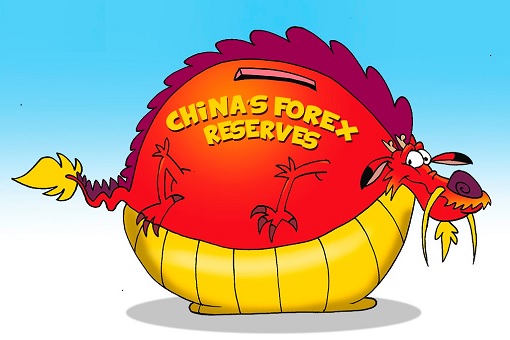
The reason why the Russian currency collapsed so easily and quickly was because the U.S. and its allies shut off the Russian central bank’s access to most of its US$630 billion of foreign reserves – effectively emptying its coffers critical to support the rubles. Using such a weapon is extremely unfair and ruthless, even though it is effective in crippling the Russian economy in order to pressure Vladimir Putin.
In spite of the unlawful and dirty tricks, can you imagine the scale of havoc if the U.S. uses the same tactic to also confiscate China’s US$3.2 trillion foreign reserves? Hence, on April 22, Chinese regulators held an emergency meeting with domestic and foreign banks to discuss how they could protect the country’s overseas assets from a similar US-led sanctions.
Beijing was quite worried that the U.S. would unleash the same weapon in the event of a regional military conflict, such as an invasion of Taiwan. However, the fact that the central bank included executives from foreign banks like HSBC in the brainstorming suggests that China wanted to pre-emptively warn that foreign business owners will suffer as much as the country if the Russia-style sanctions are imposed.
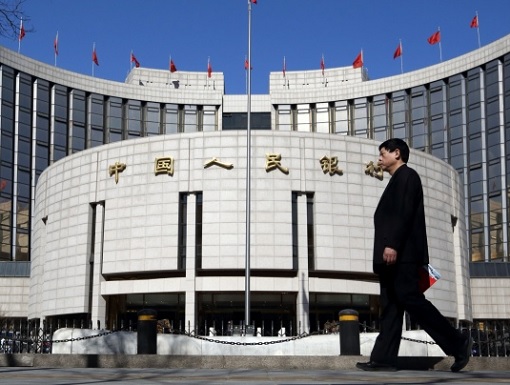
While some analysts saw the discussion as a sign that China is preparing for a military conflict with the U.S. over Taiwan, the emergency meeting could be deliberately held to send a message that Beijing refuses to be trapped or blackmailed – in case America abuses the tool in any future disagreements with China, including non-Taiwan related issues.
For example, President Biden warned last month of secondary sanctions against China for refusing to condemn Russia because Beijing rejected unilateral sanctions, arguing that it “has the right to safeguard its legitimate rights and interests”. Washington has repetitively warned of punishments if China extends military or economic help to Russia after the invasion of Ukraine.
Like it or not, the Chinese government has to prepare for the worst case scenario, even if it has no intention to invade Taiwan (unless provoked). What if the U.S. suddenly incites Taiwan to declare independence, and the Taiwanese leaders foolishly swallow the hook, line and sinker? China would be trapped – facing sanctions if it invades, or losing Taiwan if it does nothing.
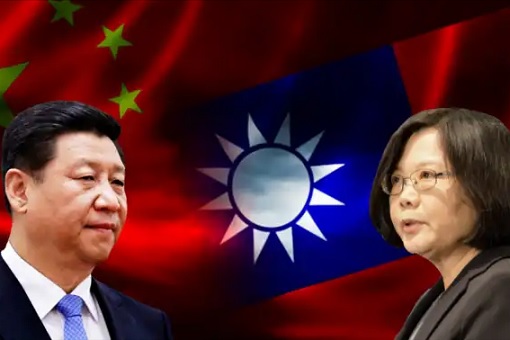
Interestingly, the meeting came after the U.S. and the U.K. held high-level private meetings over how they can cooperate more to reduce the likelihood of war with China over Taiwan. Reports suggest that Washington is considering “proportionate sanctions” on China if it invades Taiwan, clearly using a similar playbook in the current Russia-Ukraine war, but at a smaller scale.
According to the Financial Times (FT), Chinese senior regulators, including Yi Huiman (chairman of the China Securities Regulatory Commission (CSRC)), and Xiao Gang, who headed the CSRC from 2013 to 2016, asked bankers how they could protect their overseas assets. Unfortunately, there is no good solution as no banking system is ready for such “nuclear attack”.
If Moscow could not even protect its US$630 billion despite many early warnings from Washington of severe sanctions if Russia invades Ukraine, it would be even harder for Beijing to protect its US$3.2 trillion. The Chinese government could only minimize the damage by increasing the usage of Renminbi, forcing the business community to do away with holding US dollar.
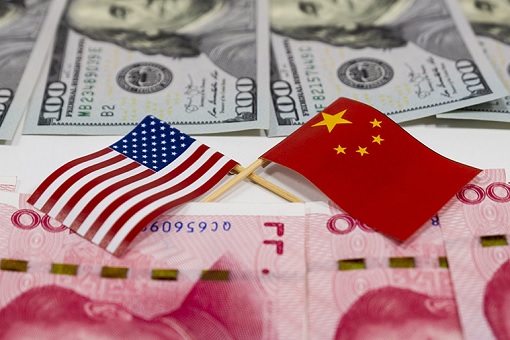
However, doing away with greenback in exchange of Renminbi cannot happen overnight. Nevertheless, Beijing has ordered a comprehensive “stress test”, which began as early as February when western allies imposed sanctions against Moscow, to study the implications of a similar scenario on its economy. The test would provide a clue to the short-term cost to China.
The good news is, during the same meeting, experts have also expressed doubt over the capacity of the U.S. to sanction China – the world’s second-largest economy – in the same way it did Russia. Andrew Collier, managing director of Orient Capital Research in Hong Kong, said – “It is difficult for the U.S. to impose massive sanctions against China. It is like mutually assured destruction (MAD) in a nuclear war”.
Indeed, Russia and China belong to a different kettle of fish. China is about 10 times bigger than Russia in terms of the size of the economy, not to mention the Chinese economy is more integrated into the global economy and financial system. If the impact of the global economy as a result of Russian sanctions is any indicator, a western sanction against China will be a suicide mission.
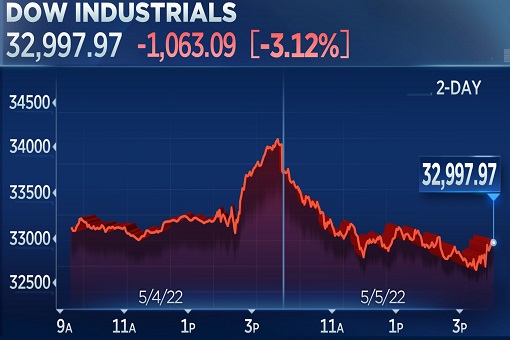
In fact, it’s not an exaggeration to say the world is now on the brink of a recession due to Russia’s invasion of Ukraine. The DJIA (Dow Jones Industrial Average) lost more than 1,000 points on Thursday, a wild swing of close to 2,000 points for the day. The economic sanctions and energy supply concerns were enough to spook the world’s stock and financial markets.
Inflation in the euro zone hit a record high of 7.5% in March, while the U.S. inflation rate accelerated to 8.5% in March, after hitting 7.5% in January and 7.9% in February – the highest in 40 years. The Bank of England raised interest rates from 0.75% to 1% to tackle spiralling inflation made worse by Russia’s war in Ukraine, but not before warning of a recession before the end of the year.
The skyrocketing energy price has triggered an economic crisis so bad that not only the British pound has plunged to its lowest against the dollar since July 2020, but the Bank of England also forecasts the country’s inflation would rise above 10% this year – the highest level since 1982. Even CEOs of European blue chip companies have warned of the coming recession.

To get an idea how disastrous it would be to slap economic and financial sanctions on China, let’s look at the Shanghai lockdown to combat Covid-19 has affected the world’s economy. Shanghai alone has a GDP of 4.32 trillion Yuan (US$670 billion), the largest of all Chinese cities. There are more than 800 top-tier multinational companies, including 121 of the Fortune Global 500 companies.
American top guns such as Apple, General Motors, Tyson Food, IBM, Microsoft, Deloitte, Ford, Cisco, BlackRock, PayPal, Tesla and Accenture are just some of the big names in Shanghai that defiantly refused to relocate despite former President Donald Trump’s efforts to force them quit China. And more than 70,000 foreign-owned companies have offices in the city.
With a total market capitalization of US$7.3 trillion, the Shanghai Stock Exchange is only third behind New York and London. The city accounts for 3.8% of China’s GDP, but a whopping 10.4% trade with the rest of the world. The city’s airports – Pudong International Airport and Hongqiao Airport – form the fourth busiest hub in the world after London, New York, and Tokyo.
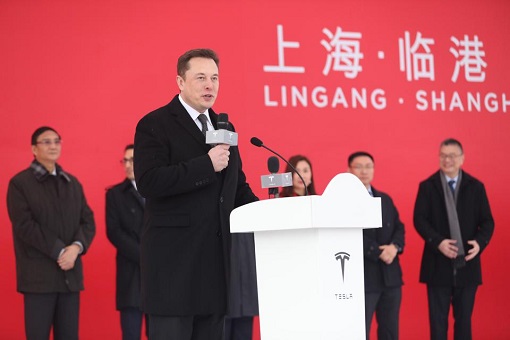
There are 24,000 Japanese companies in Shanghai alone. So, can German engineering powerhouse Volkswagen or Tesla’s giga-factory or Japan afford to close their businesses in Shanghai the same way they exit Russia? The spillover impacts on regional supply chains will be unimaginable that the U.S. may not even get support from any of its allies – Europe or Japan – to isolate China.
Having said that, it doesn’t mean China has no weapons of its own to strike back. In response to a potential freeze of its foreign reserves, Beijing could nationalize the stock of FDI in China worth a staggering US$1.9 trillion – targeting investments from the U.S., Europe or other “unfriendly countries”. It can also seize US$1.2 trillion of Chinese onshore shares and bonds.
China’s external debt is as impressive as its US$3.2 trillion foreign exchange reserves. As at the end of September 2021, China recorded 17.4877 trillion Renminbi (US$2.62 trillion) in outstanding external debt denominated in both domestic and foreign currencies. Most of the debt, including sovereign bonds, is in US dollar and Euros – the sitting duck.

Like the U.S, the Chinese too can play dirty and stop servicing those debts, using the same argument that it is willing and able to pay, but is prevented from doing so by the U.S. sanctions. If Beijing likes, it can even invoke the “force majeure” clause in external debt contracts, which allows it to suspend performing contractual obligations due to unforeseeable circumstances.
Due to the size of Chinese external debts, a mere “threat” to suspend servicing its external debt would instantly trigger massive panic in the global financial markets and Western investment and pension funds. If the Western powers are foolish enough to seize China’s foreign reserves, the country will have nothing to lose and could easily deploy “scorched earth tactic”.
Despite four years of US-China trade war, which began in July 2018 under the Trump administration, China’s trade surplus with the U.S. hit US$396.58 billion in 2021, a jump of 25% from 2020. In total, China’s trade surplus with the world hit a record US$676.4 billion in the same year. The U.S. remains as China’s third-largest trade partner following ASEAN and the European Union.
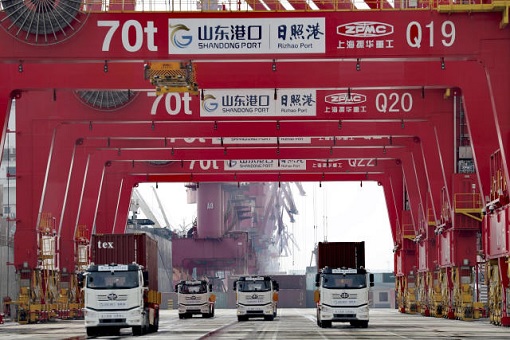
As a matter of fact, China’s trade hit US$6 trillion for the first time in 2021, while its GDP (gross domestic product) reached 114.4 trillion Renminbi (US$17.7 trillion). In comparison, the U.S. trade amounted to approximately US$4.6 trillion while its GDP reached US$23 trillion in the same year. Imagine the economic consequences if China suddenly disappears from the map due to sanctions.
The macroeconomic impact to the U.S. may be less severe compares to China, largely because America buys more from China. However, the current scenario clearly shows American consumers have a lower tolerance for goods shortage, let alone social and political fallout for high inflation. Even though China’s huge surplus might show it needs the U.S. more, there’s one factor most people didn’t realize.
Every year since 2010, China has held more than US$1 trillion in U.S. debt. That’s a massive amount of I.O.U. papers out of the US$7.6 trillion in Treasury bills, notes, and bonds held by foreign countries. While this allows the Chinese economy to grow, it also allows Americans to borrow almost endlessly – hence the government debt, household debt, business debt and whatnot.
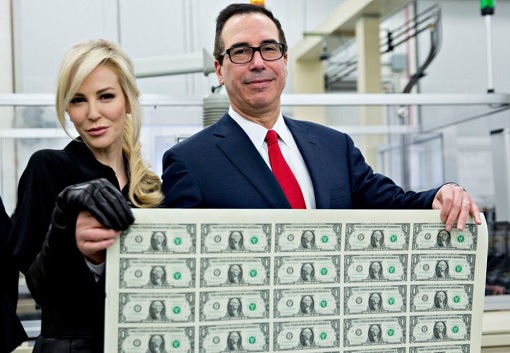
As long as China runs large trade surpluses, it has no choice but to acquire foreign assets in exchange for the surpluses. Therefore, the best defence is a good offence. Instead of trying to find ways to protect its US$3.2 trillion foreign reserves, perhaps China should prepare to unleash all the counter measures to ensure both sides will suffer substantial damages – the mutually assured destruction (MAD).
Other Articles That May Interest You …
- Some Of $3.4 Billion Weapons Sent To Ukraine Will End Up In Black Market – Others May Come Back To Haunt U.S. & Europe
- Now Only U.S. Worries About China’s Nuclear Weapons Expansion – How & Why China Shifts Its Nuclear Strategy
- Ukraine Invasion – Putin’s Real Intention That Conventional Wisdom Have Failed To Comprehend
- U.S. Sanctions Fail – How Russian Currency Emerges Stronger Than Pre-War With A New Gold Standard
- Pay Gas In Ruble Or Else – Europe In Serious Trouble As Putin Retaliates Against Western Sanctions
- Is U.S. Really That Powerful? – Zelensky Frustration Grows Over Biden Foot-Dragging In Helping Ukraine
- Bypassing US Dollar – India And Saudi Arabia To Turn To Chinese Yuan In Trades With Russia & China
- From Wheat To Oil & Gas – How Russia Invasion Of Ukraine Affects Europe’s Food Supply, And Even Your Loaf Of Bread
- China Creates Digital Currency – Here’s Why It’s A Big Deal To The World’s Economy, And A Big Problem For The U.S.
- Economic Destabilization – How China Prepares For American & Japanese Military Interference In Taiwan Conflict
- North Korea’s 10 Clever Tactics To Evade Economic Sanctions

|
|
May 6th, 2022 by financetwitter
|


|

|

|

|

|

|




























Comments
Add your comment now.
Leave a Reply